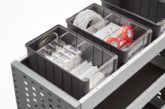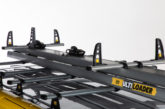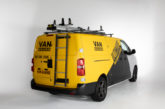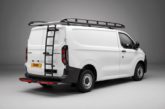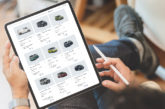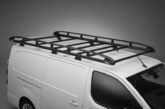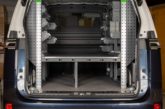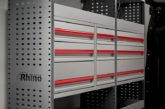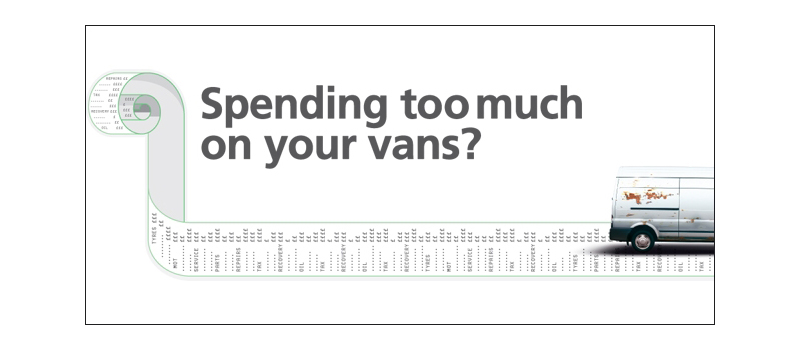
Mark Batey from Northgate Vehicle Hire looks at how your vehicle acquisition method impacts on your business’s financial health.
In my experience, when a business is faced with the task of choosing an appropriate vehicle acquisition method, the people most likely to advise on this are often the accountants. However, this task can seem daunting for both accountants and business owners, and perhaps somewhat unclear when assessing which option will benefit your business model the most. It’s important to get an expert in the vehicle industry to give you a balanced and informed opinion when looking at different options, so that you have the time to step back and take a look at the bigger picture. Different funding and acquisition methods have a variety of benefits, whether they are instant or are realised further down the line. Different vehicle acquisition methods can have effects on businesses beyond vans and cars, including matters like company liability and future financial leverage.
A company’s liability can be measured by a gearing ratio, which is a term for describing a financial ratio that compares an owner’s equity to borrowed funds. Gearing is a measure of financial leverage, demonstrating the degree to which a firm’s activities are financed by the owner’s funds versus a creditor’s funds – the higher a company’s degree of leverage, the more the company is considered risky.
In terms of attractions, there are many advantages and disadvantages within each of the main options; outright purchase, hire purchase, contract hire and flexible vehicle hire. It’s easy to understand why this process can often appear daunting!
One of the main attractions of outright purchase is to own a vehicle fully, which seems great. The reassurance, familiarity and positive feeling that owning assets can deliver can be the reason it is the default button for many businesses. However, with ownership comes responsibility, service, maintenance, repair, tax and replacement vehicles. These are just a number of problems that fall onto the lap of a vehicle owner. Then there’s the fact that the vehicle purchase will lead to a cash outflow, which will show on your balance sheet as a depreciating asset, which can have a negative impact on your gearing ratio. Also consider what could be done with this capital that you’ve chosen to tie into your fleet – could it be better spent elsewhere to grow your business?
On the plus side, with outright purchase, a business can clock up as many miles as they like without coming across any penalties in terms of the mileage or damage, (but the cost of repair will fall with an owner rather than an external company). Another tick in the box when choosing outright purchase is that owners can save money in Benefit In Kind (BIK) Tax, where drivers will pay tax in conjunction with the approved CO2 emission for the vehicle. There are limitations too however, as this is only a short term saving and only benefits drivers that choose environmentally friendly cars.
If owning a vehicle is high on the priority list for your company, then hire purchase is another method to consider. As with outright purchase there are some great benefits to be had and is the right choice if the business owner is looking to own the asset at the end of the agreement. Again, this method will show as a depreciating asset on your balance sheet. The company will have the responsibility for payment and interest liability for the duration of the contract, which could have a detrimental effect on gearing ratios. However, with this method, you will still benefit from main dealer servicing, reducing the burden of repairing the vehicle.
To remove depreciating assets from the balance sheet, a company can choose to acquire a vehicle through a number of methods. Flexible vehicle hire is one option which really does deliver some significant financial benefits. As it is classified as an operating lease, there is no depreciating asset because the supplier will have ownership of the vehicle rather than the hirer and there is no liability on the part of the hirer. They do not enter into a contract for payment and are not therefore dictated by the terms of a contract, which can result in a negative impact on a gearing ratio. In one flexible vehicle hire case I’ve worked on, we managed to erase £1.2 million in liability from a company – freeing up a gearing ratio to allow them to borrow money. However, with flexible vehicle hire you will never own the vehicle and won’t benefit from main dealer servicing, but you will be able to de-fleet in quiet periods and have a healthier, better-looking balance sheet – particularly appealing for businesses affected by seasonality. Significant savings can also be made on SMR, with no exposure to other associated costs of vehicle ownership; vehicle parts, consumables and breakdown services, for instance.
Contract hire does not necessarily offer the same benefits as flexible vehicle hire, as the term and the proportion of the cost of the asset the business takes on, dictates whether or not it appears on balance sheet. Also, in some instances servicing and maintenance is limited, resulting in additional time and money spent by the businesses owner to manage this via a third party dealer. Another aspect to be aware of are mileage penalties. I have heard countless stories of unsightly mileage penalties when businesses have gone over their planned miles. In one instance, one of my customers clocked up £2,000 in mileage penalties, meaning that they could no longer afford to run the vehicle. However, on the plus side, with fixed monthly repayments and no problems with vehicle disposals, contract hire definitely does offer some benefits.
This isn’t by any means an extensive list, as we’ve simply focused on the financial impact of vehicle acquisition in this article. There are numerous operational benefits to these options too, but this should offer you a balanced view of what is out there, making your decisions around vehicle acquisition easier. Personal experience of this scenario through the businesses I have worked with means I know what a minefield it can be. All businesses really want to do is run profitably, without added hassle.
When businesses do choose to come to Northgate, many have switched 100% of their fleet from purchase and contract hire, whilst others use our product to complement their existing fleet. However, those who use us for all of their vehicles all have one thing in common; a desire to save money and run an efficient and effective fleet, whilst improving their business’ financial strength.


